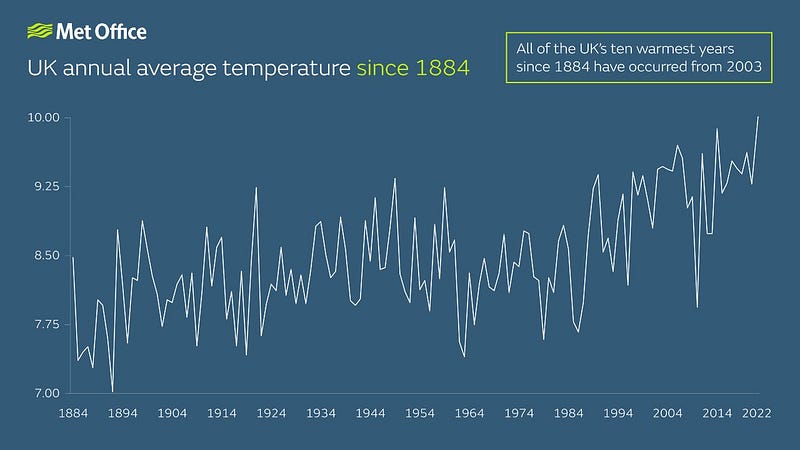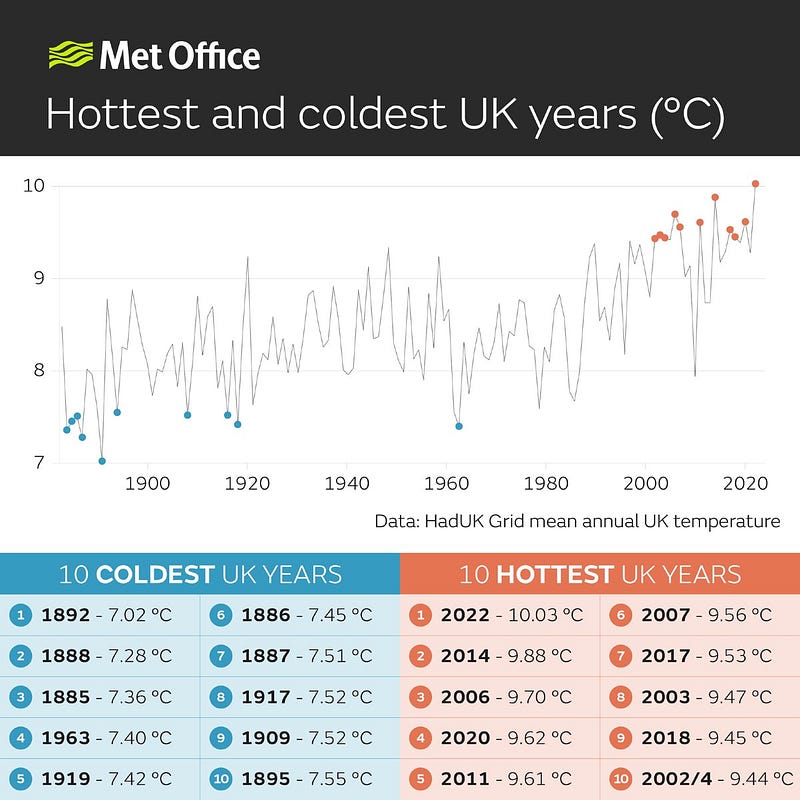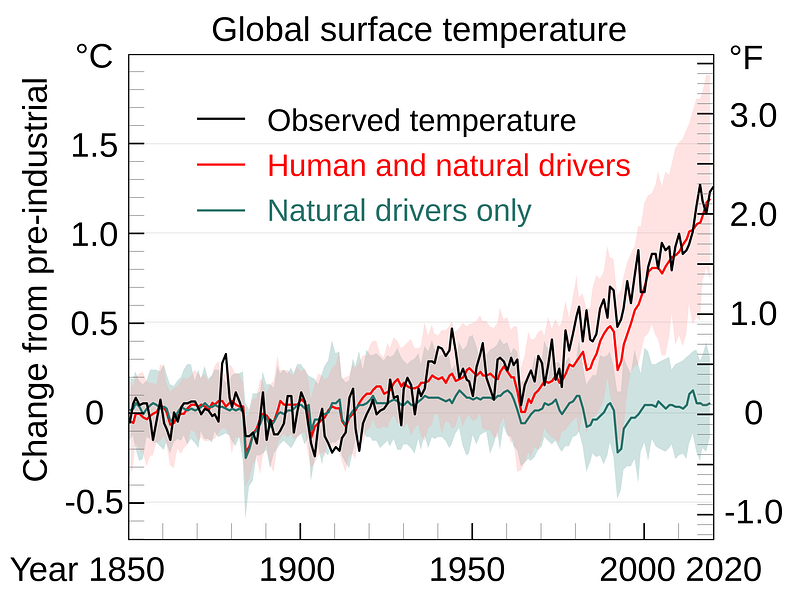#Understanding Climate Change: Insights and Misconceptions
Written on
Chapter 1: The Reality of Climate Change
While a significant portion of the population acknowledges the warming of our planet, a minority remains skeptical. This skepticism is often perpetuated by the oil and gas sector, which seeks to maintain its influence by promoting continued reliance on fossil fuels. If you find yourself questioning the existence of climate change, let's examine some recent developments that shed light on the issue.
On January 5, the UK's Met Office announced that 2022 marked the hottest year on record for the UK, with average annual temperatures surpassing 10°C for the first time. The following day, Michael Wehner, a senior scientist at the Lawrence Berkeley National Laboratory, shared a brief video explaining how climate change exacerbates rainfall during California's winter storms and offering tips for better preparedness. Lastly, a tweet from climate skeptic Steve Milloy claimed to provide evidence refuting climate change, but this assertion warrants further scrutiny.
Item 1: Record-Breaking Temperatures in the UK
In contrast to the politically charged climate debates in the United States, insights from unbiased scientists reveal the ongoing effects of climate change. The UK's Met Office conducted an attribution study confirming that 2022 was indeed the hottest year recorded, with average temperatures exceeding 10°C for the first time. This finding is corroborated by robust data, making it clear that this record is not an anomaly but a reflection of our changing climate.
To provide context, here is a chart tracking the UK's average annual temperatures over the years...

Additionally, the Met Office has compiled a chart of the hottest and coolest years in the UK...

For more detailed information, you can access the full press release here.
Item 2: Video Insights on Climate Change and Winter Storms
It’s no secret that winter storms occur; however, the impact of climate change is intensifying these weather events. A brief video from Lawrence Berkeley National Laboratory, featured on Phys.Org, delves into how climate change increases rainfall during severe storms and suggests ways for people to better prepare for these conditions.
Key Observation: Climate change is not a distant problem for future generations; it is a pressing issue we face today.
Item 3: Analyzing Steve Milloy's Claims Against Climate Change
Recently, Steve Milloy shared a tweet claiming to debunk climate change...
While his assertion seems definitive, it’s essential to scrutinize the method behind his argument. Milloy cherry-picks two specific data points—December 1987 and December 2022—ignoring the broader dataset. If we were to adopt a similar approach, selecting other years, we could easily illustrate a different narrative about climate change.
To understand the bigger picture, one must consider the entirety of the data and the prevailing trends. Here is a longer timeline illustrating changes in global surface temperature over the past 170 years...

While Milloy’s claims may mislead some, they are largely ineffective against those who grasp the comprehensive data. His approach seems more like a deliberate attempt at disinformation, possibly motivated by financial interests. Milloy's affiliation with The Advancement of Sound Science Center, funded by corporate entities to challenge scientific consensus, underscores this notion.
Bottom Line: Should We Question Climate Change?
If credible alternative explanations exist that account for the phenomena we observe, then skepticism is warranted. However, the overwhelming consensus points to fossil fuel emissions as the primary driver of climate change, leading to increased energy retention from the sun and significant alterations in our climate.
For those who feel there is a valid counterargument, the scientific community welcomes data submissions to reputable journals. Be advised, platforms like Twitter, Facebook, YouTube, TruthSocial, and Fox News do not constitute credible scientific forums.